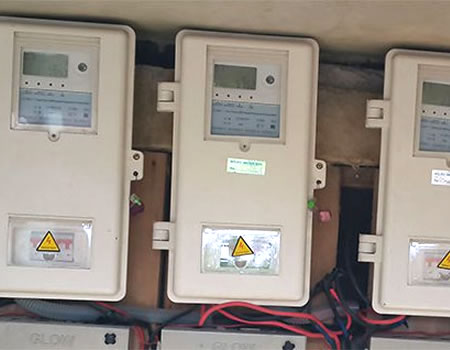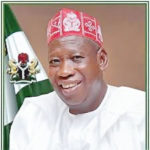FOLLOWING an order on the minor review of the Multi-Year Tariff Order (MYTO) which allows for a cost-reflective tariff, the Federal Government (FG) has offered to subsidize electricity tariff for Nigerians between January 1st and July 2020 in line with the Power Sector Recovery Plan (PSRP).
It said the PSRP allows for a gradual transition to cost-reflective tariff so as to cushion the effect on the less privileged in the country.
This is contained in a stack of documents uploaded on NERC’s website, and jointly signed by the Commission’s Chairman James Momoh and Commissioner, Legal, Licensing and Compliance, Dafe Akpeneye.
The Order titled: “the 2016 – 2018 Minor Review of Multi-Year Tariff Order (MYTO) 2015 and Minimum Remittance Order for the year 2019 stated that for this period, the Federal Government(FG) would pay the difference between cost-reflective tariffs determined by the Commission and the actual end-user tariffs.”
It reads: “The PSRP provides for a gradual transition to cost-reflective tariffs with safeguards for the less privileged in the society. It is proposed that an intermediate review in end-user tariffs on January 1, 2020 and transition to full cost reflectivity shall be achieved by July 2020.
“In the interim, the Federal Government, under the PSRP, has committed to fund the revenue gap arising from the difference between cost-reflective tariffs determined by the Commission and the actual end-user tariffs.”
Under this arrangement, the Commission mandated the DisCos to settle their market invoices in full in line with the applicable tariff shortfall approved by it.
It added that the intervention from the financing plan of the PSRP for funding tariff shortfall would be applied through NBET and Market Operators(MO) to ensure 100% settlement of market invoices.
The Commission also ordered the 11 electricity distribution companies (DisCos) to meter all Ministries, Departments and Agencies (MDAs) of States and Federal Government with appropriate meters of their choice within 60 days.
It said this is to guide against bad debts, stressing that the DisCos reserve the right to disconnect any MDAs defaulting in the payment for electricity, in line with the Regulation on Connection and Disconnection Procedures for Electricity Services.
The documents further gave conditions for settlement of historical debts accrued by each DisCo due to tariff shortfall.
According to it, the tariff shortfall accrued between 2015-2018 would be settled in line with the Power Sector Recovery Plan (PSRP) but noted that the DisCos would bear the liability for the market shortfall as a result of non-remittance to the Nigerian Bulk Exchange Trading (NBET) PLC.
ALSO READ: Free, compulsory education will eliminate out-of-school children syndrome ― Ganduje
It further explained that the market debt would be deducted from the tariff shortfall adding that DisCos with an excess of tariff over market shortfalls shall be compensated for the difference.
It reads: “Under the Power Sector Recovery Plan (“PSRP”) approved by the Federal Government, all accrued liabilities in DisCo’s financial records arising from tariff shortfalls shall be transferred off the balance sheet and fully settled under the financing plan of the PSRPinitiative.
“All funds retained by the DisCos as represented by the excess of the market (remittance) shortfalls over tariff shortfall are to be recovered as a full liability of the DisCos, including applicable interest thereon, in line with the provisions of the Supplementary TEM Order, the Market Rules and respective industry contracts with NBETand the MO.
“All DisCos with an excess of tariff shortfall over market shortfall shall be compensated accordingly for the difference.”
The minor review of the Multi-Year Tariff Order (MYTO) seeks to reflect the impact of changes in the Minor Review variables in the determination of cost-reflective tariffs and relevant tariff and market shortfalls for the years 2016 to 2020.
According to the commission, the move is in accordance to the Electric Power Sector Reforms Act (EPSRA) which issued the MYTO-2015 tariff order in December 2015 to address the provision of cost-reflective tariff to ensure that the prices charged by DisCos are fair to consumers and sufficient for the DiSCos to operate efficiently.
It said that the review is carried out based on variables beyond the control of the DisCos which include; inflation, exchange rate, US inflation rate, gas price and capital expenditure allowed for the Transmission Company of Nigeria(TCN).
Speaking on the review, the NERC Chairman, Prof. Momoh in an interview with Newsmen, said the order was issued after due consultations with key players and stakeholders.
“We are open to discussions, it is not by trying to do things by fiat, it is true careful thinking, consultations with the discos and it is out. So we have discussed fully what we are about to do and it is the right time to do it,” he said.
While stressing the need for meters and conservation of power, he said: “We have meters out there so that everyone can control how much power you use. I think we are in the right direction and I think for the first time, we got all the rationale. There would be a penalty for not providing quality services, then your meter won’t read then you won’t be paying. And if you are not metered, there is going to be a CAPMI on what you should pay which is under consultation.
“It is critical, we have to minimize loss at the customer end also at the DisCos level so that they can get more value for their investment. It is a win- win for everybody. When I teach electric power engineering, I tell them power- in-money out, money in-power out.
“We have to make sure that we maximize that asset that distributes, transmits, evacuates that power in that is converted from gas to power and goes through all the channels to get to the customers So all the interface challenges we have at all levels is what NERC is worried about. How do we overcome them, if there are losses, how do we minimize them that is our job and customers are also required to participate in.”
When contacted, the Director, Research and Advocacy, Association of Nigerian Electricity Distributors(ANED) Mr. Sunday Oduntan reacting to the development simply said ‘the order was still being analysed’.
However, he described the move as a mandatory legal minor review.
WATCH TOP VIDEOS FROM NIGERIAN TRIBUNE TV
- Let’s Talk About SELF-AWARENESS
- Is Your Confidence Mistaken for Pride? Let’s talk about it
- Is Etiquette About Perfection…Or Just Not Being Rude?
- Top Psychologist Reveal 3 Signs You’re Struggling With Imposter Syndrome
- Do You Pick Up Work-Related Calls at Midnight or Never? Let’s Talk About Boundaries







